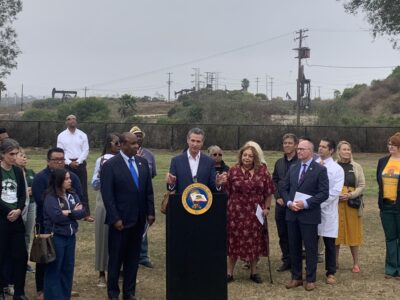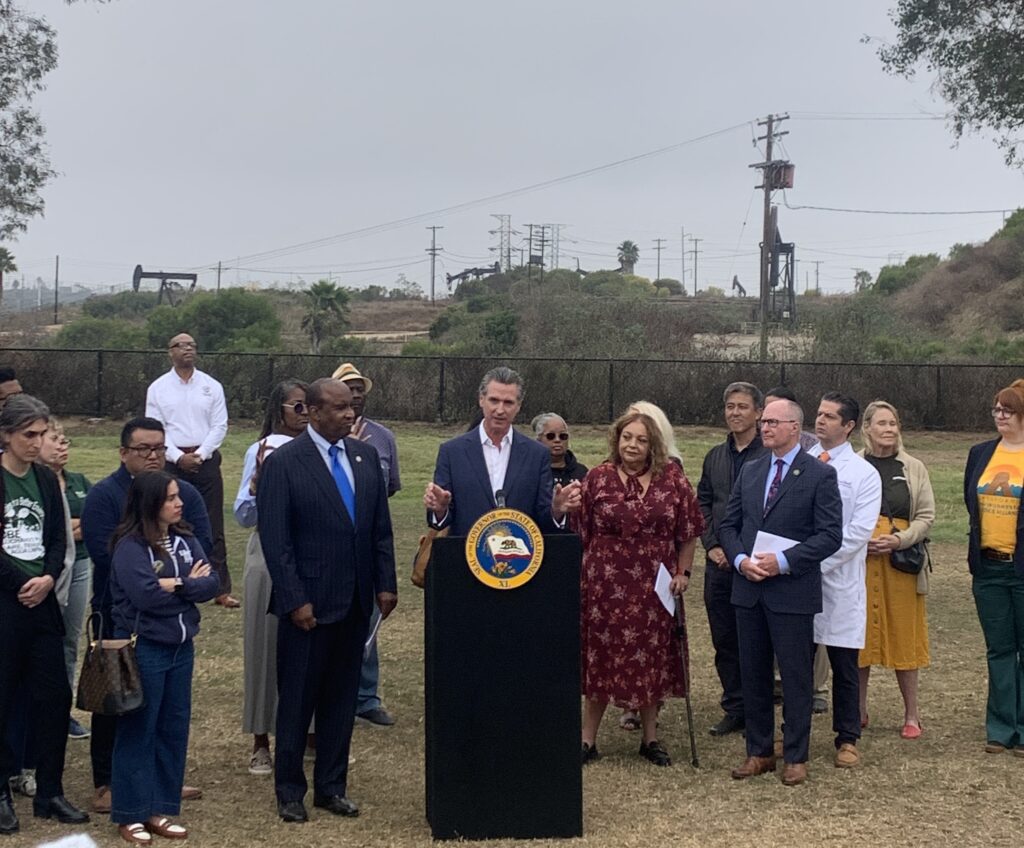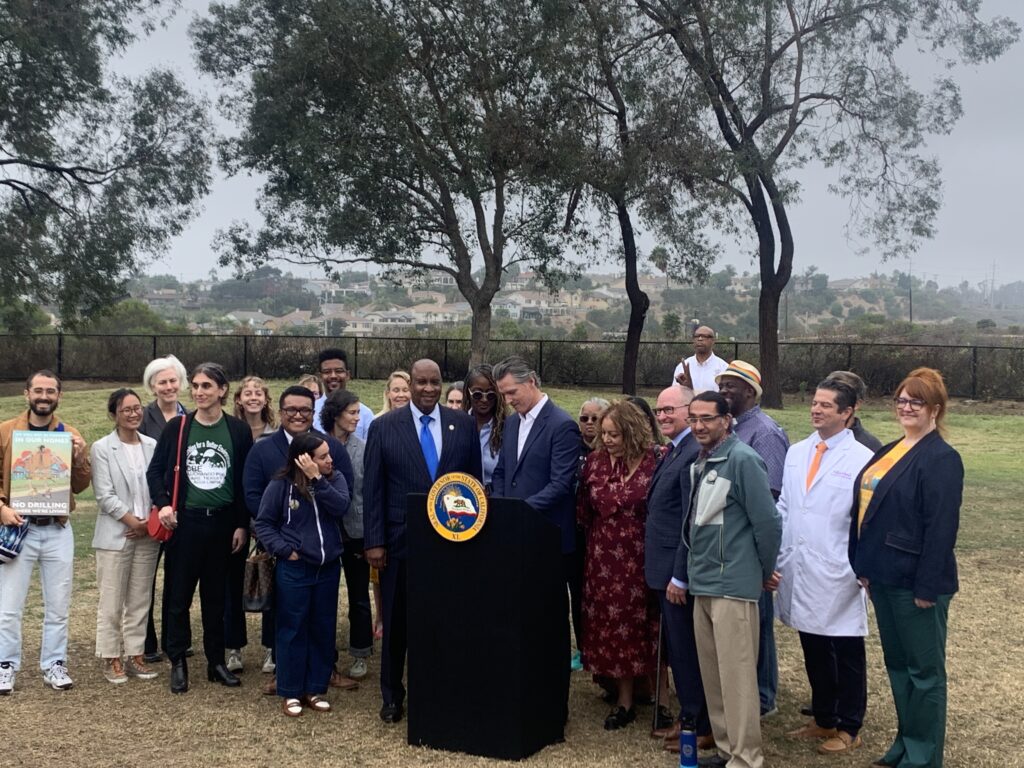New Law Reaffirms Local Authority to Ban Oil Drilling
Legal Planet: Environmental Law and Policy 2024-09-26


This morning, Governor Newsom signed a trio of bills—AB 3233 (Addis), AB 1866 (Hart), and AB 2716 (Bryan)—that will protect communities in Los Angeles and across the state from the harms of oil and gas production, the impacts of which are disproportionately experienced in low-income communities of color across the state. He signed the package on a Los Angeles soccer field that overlooks oil wells, joined by community organizers who have led the charge for years.
Critically, AB 3233 clarifies and confirms local government authority to regulate, and even prohibit outright, oil and gas operations. Local governments have historically had clear, constitutionally-derived authority to control land uses within their jurisdictions, but a California Supreme Court decision handed down last year in Chevron U.S.A. v. County of Monterey held that a local ordinance phasing out wastewater injection wells and new well drilling in Monterey County was preempted by state oil and gas regulations because it regulated “methods and practices” of oil drilling. Prior to that decision, oil industry plaintiffs had already sued Los Angeles’ oil production phase-out ordinance; in early September, Los Angeles Superior Court Judge Kin held that ordinance was preempted by state law as well.
 Gov. Newsom, LA Supervisor Holly Mitchell, Inglewood Mayor James Butts, and Assemblymember Gregg Hart joined by members of the STAND-L.A. Coalition, Communities for a Better Environment, and others who have advocated for tighter restrictions on drilling. Photos by Evan George
Gov. Newsom, LA Supervisor Holly Mitchell, Inglewood Mayor James Butts, and Assemblymember Gregg Hart joined by members of the STAND-L.A. Coalition, Communities for a Better Environment, and others who have advocated for tighter restrictions on drilling. Photos by Evan GeorgeAB 3233 addresses these decisions head-on, making it clear in state law that local governments are free to limit or prohibit oil and gas production or development—even when doing so might mean regulating the “methods” of those activities. In so doing, the law acknowledges the traditional role of local governments in exercising land use controls to protect the public health and safety of their residents. As Los Angeles County Supervisor Holly Mitchell said this morning: “[This bill is] upholding and reaffirming the authority of the County and other local governments in passing ordinances that protect residents from the effects of oil and gas pollution. We are going to stand firm in that.”
The other two laws in this package will have important effects as well, most especially for disadvantaged communities that are overburdened by pollution from oil and gas production activities. AB 1866 will increase the fees operators pay to the state to maintain “idle” wells—wells that are not currently producing oil and gas, but which sit uncapped, releasing harmful pollutants, sometimes within hundreds of feet of residential communities. It will also require operators to engage in more robust efforts to properly cap and abandon those wells, and to eliminate more idle wells each year. And AB 2716, which specifically affects California’s largest urban oilfield, Los Angeles’ own Inglewood Oil Field—adjacent to which Governor Newsom signed the three bills this morning—will require the state oil and gas regulator, CalGEM, to identify all low-producing wells within the field by next March. After March 2026, those wells can only operate as low-producing wells for another year. And all wells in the field will need to be plugged and abandoned by December 2030.
At the signing ceremony, supporters of the bill were already anticipating challenges ahead; Martha Dina Argüello who heads Physicians for Social Responsibility LA assured the crowd that “we will be there, watchdogging” as the new laws take effect. All three represent important steps forward in the effort to protect our state’s most vulnerable communities from oil and gas pollution.